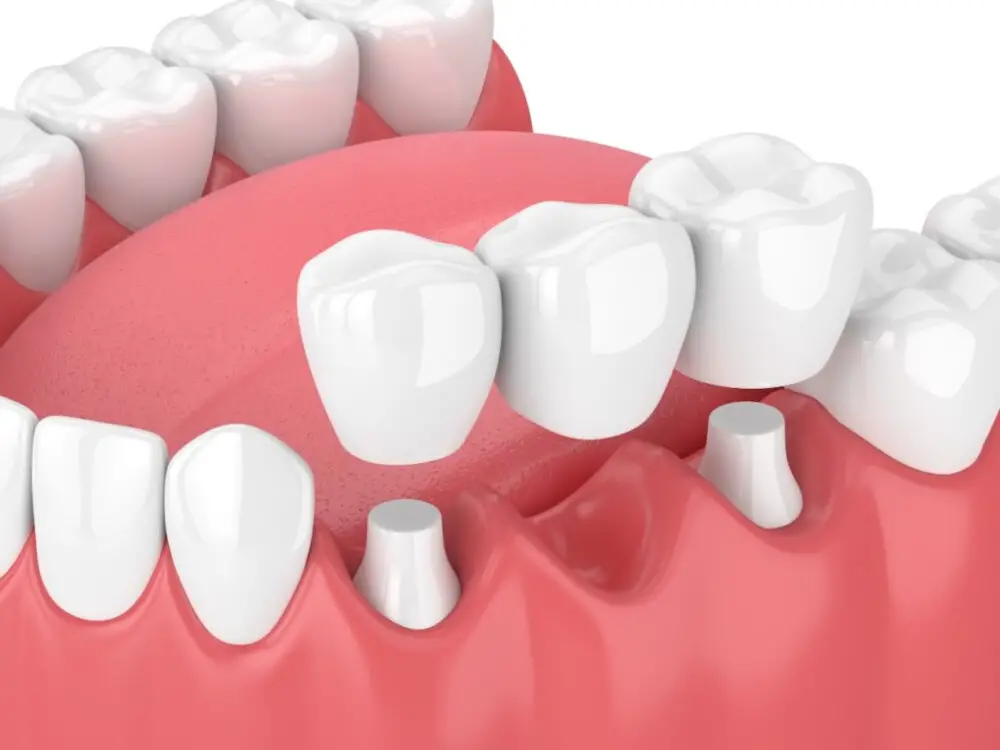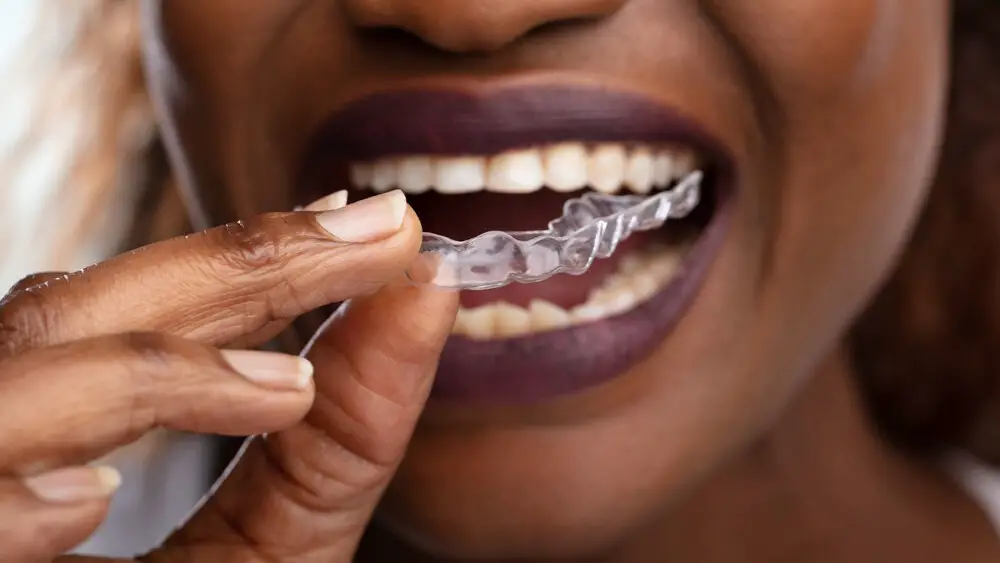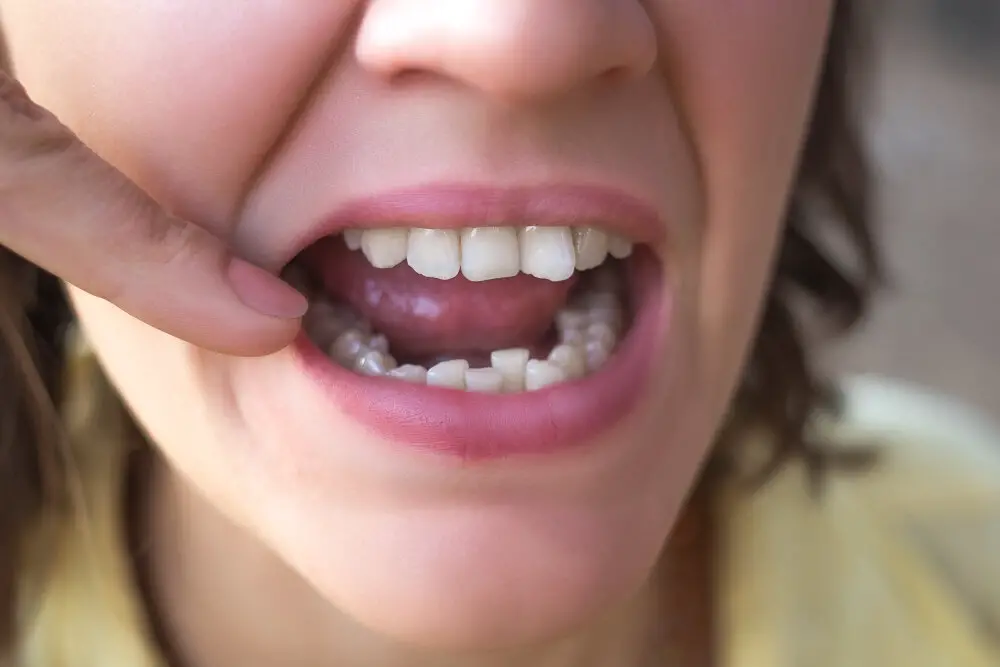Teeth Extraction 101: How Long Does It Take to Get All Your Teeth Pulled?

Teeth extraction is a common dental procedure that involves the removal of one or more teeth from the mouth. It may be necessary due to various reasons such as decay, infection, overcrowding, or trauma. While the thought of getting all your teeth pulled may sound daunting, it is sometimes necessary to improve oral health and prevent further damage. However, one of the most common questions people have when it comes to teeth extraction is how long the entire process takes. The duration of teeth extraction can vary depending on the number of teeth being removed, the type of extraction, and the patient’s individual factors such as age, health, and medical history. Some extractions can be completed in just a few minutes, while others may take several hours. In this article, we will explore the different factors that can affect the length of teeth extraction and provide a general timeline for the overall process. We will also discuss what to expect before, during, and after the procedure to help you prepare for your teeth extraction and ensure a smooth recovery.
Teeth extraction is a dental procedure that involves the removal of a tooth from the socket in the bone. This can be done for a variety of reasons, such as to address overcrowding in the mouth, to remove a damaged or decayed tooth, or to prepare the mouth for orthodontic treatment. The procedure is typically performed by a dentist or oral surgeon under local or general anesthesia, and involves the use of specialized tools to carefully loosen and remove the tooth from its socket. While the thought of having a tooth extracted may be daunting, modern dental techniques and anesthesia options have made the process much smoother and less painful than in the past.
There are several reasons why a person may need to have their teeth extracted. One of the most common reasons is due to severe tooth decay or damage that cannot be repaired with other dental procedures. Another reason may be due to gum disease, which can cause the teeth to become loose and eventually fall out. Additionally, teeth may need to be extracted in preparation for orthodontic treatment or if there is overcrowding in the mouth. In some cases, wisdom teeth may also need to be extracted if they are causing pain or other dental issues. While the thought of having teeth extracted can be daunting, it is often necessary to maintain overall dental health and prevent further complications.
Factors That Affect the Time Required for Teeth Extraction

There are several factors that can affect the time required for teeth extraction, and these factors vary depending on the complexity of the procedure. One of the most significant factors is the number of teeth that need to be extracted. If only a few teeth need to be removed, the procedure can typically be completed within a few minutes. However, if multiple teeth need to be extracted, the procedure can take longer. Another factor that can affect the time required for teeth extraction is the condition and location of the teeth. If the teeth are severely decayed or damaged, they can be more difficult to extract, which can prolong the procedure. Additionally, if the teeth are located in an area that is difficult to access, such as the back of the mouth, the procedure may take longer. The experience and skill of the dentist or oral surgeon performing the extraction can also affect the time required for the procedure. An experienced professional may be able to complete the procedure more quickly and efficiently than someone who is less experienced.
The number of teeth that need to be extracted varies from person to person, depending on the specific dental condition and the patient’s individual circumstances. While some patients may require only one or two teeth to be extracted, others may need multiple extractions, or even all of their teeth removed. Tooth extractions are usually recommended when the tooth is severely decayed, damaged, or infected beyond repair, or when there is overcrowding or misalignment in the mouth. Generally, a dentist or oral surgeon will conduct a thorough examination, including X-rays, to determine the number of teeth that need to be extracted and the best course of action for the patient’s oral health.
The condition of your teeth plays a significant role in determining how long it will take to get all your teeth pulled. If you have healthy teeth with no underlying dental issues, the extraction process may take less time. However, if you have decayed or damaged teeth, the extraction process may take longer as the dentist will need to be more cautious and careful during the procedure. Additionally, factors such as the shape and size of your teeth, the strength of your jawbone, and the number of teeth that need to be pulled will also impact the length of the procedure. Therefore, it’s essential to maintain good oral hygiene, visit your dentist regularly, and address any dental issues promptly to ensure that your teeth remain healthy and strong.
There are two primary types of tooth extraction: simple and surgical. Simple extraction is typically performed on teeth that have already erupted above the gum line and can be easily removed with forceps. This procedure is relatively quick, and patients typically experience minimal discomfort. Surgical extraction, on the other hand, is a more complex procedure that is required for teeth that have not yet erupted or are impacted. It involves making an incision in the gum tissue to access the tooth and may require the removal of bone tissue to fully extract the tooth. This procedure is more involved and may require a longer recovery period.
When it comes to teeth extraction, patient’s health and age play a crucial role in determining the recovery time. Younger patients with good overall health tend to recover quicker compared to older patients with underlying health conditions. Age-related changes in the body can affect the healing process, and dental procedures may pose more risks for older patients. Therefore, it is essential to assess the patient’s health and age before undergoing a teeth extraction procedure to ensure a safe and successful outcome. Patients should also follow their dentist’s post-operative instructions carefully to promote faster healing and minimize complications.
Typical Time Required for Teeth Extraction

Tooth extraction is a common dental procedure that may be necessary to improve oral health or to prepare for other dental treatments. The time required for teeth extraction varies depending on the number of teeth being removed and the complexity of the extraction. Generally, a single tooth extraction may take 20-40 minutes, while multiple teeth extractions or complex cases may take up to an hour. The extraction process begins with the dentist administering local anesthesia to numb the area surrounding the tooth. Once the area is numb, the dentist uses specialized tools to loosen the tooth and remove it from the socket. Any remaining debris or fragments are carefully removed, and the socket is cleaned and packed with gauze to control bleeding. The dentist may also prescribe pain medication and provide aftercare instructions to ensure a speedy recovery. Overall, tooth extraction is a relatively quick and straightforward procedure, but it is important to follow all instructions and take necessary precautions to prevent complications.
The amount of time required for a single tooth extraction can vary depending on various factors. Typically, a simple extraction of a fully erupted tooth can take anywhere from a few minutes to 30 minutes, whereas a more complex extraction of an impacted or broken tooth may take up to an hour or more. The process involves administering local anesthesia to numb the area and then using specialized instruments to loosen and remove the tooth from its socket. The dentist or oral surgeon will also provide instructions on post-operative care to ensure proper healing and minimize discomfort. It’s essential to follow these instructions carefully to avoid complications and promote optimal healing.
The duration of multiple teeth extraction can vary depending on the number of teeth to be removed, the complexity of the procedure, and the patient’s overall health. Generally, it takes around 30 to 60 minutes to extract one tooth, and the time increases accordingly for multiple teeth extraction. In some cases, the dentist may need to perform a surgical extraction, which involves making an incision in the gums to access the tooth, and this can take longer than a simple extraction. Additionally, the time required for recovery and healing also depends on the number of teeth extracted and the patient’s health condition. It is essential to follow post-operative instructions provided by the dentist to ensure a smooth and speedy recovery.
The recovery time after teeth extraction varies from person to person and depends on several factors such as age, overall health, and the number of teeth extracted. Generally, it takes about one to two weeks for the gums to heal completely, and during this period, patients may experience discomfort, swelling, and bleeding. It is essential to follow post-operative instructions carefully, including avoiding smoking, drinking through a straw, and consuming hard or crunchy foods. Pain relief medications may be prescribed to manage pain, and it is recommended to rest and limit physical activity for a few days after the extraction. Maintaining good oral hygiene by brushing gently and avoiding the extraction site during brushing is crucial during the recovery period. In summary, the recovery time after teeth extraction is a crucial period that requires attentiveness and care to ensure optimal healing.
Preparation and Aftercare Tips for Teeth Extraction

When it comes to getting your teeth extracted, there are a few preparation and aftercare tips that you should keep in mind. Firstly, it is important to inform your dentist about any medications that you are taking, as some medications may interfere with the extraction process. Additionally, you should avoid smoking and drinking alcohol for at least 24 hours before the procedure, as these substances can slow down the healing process. It is also recommended that you wear comfortable clothing and bring a friend or family member to drive you home after the procedure. After the extraction, it is important to follow the aftercare instructions provided by your dentist. This may include applying an ice pack to reduce swelling, avoiding hot or hard foods for the first few days, and taking pain medication as prescribed. You should also avoid smoking and drinking alcohol for at least 24 hours after the procedure, as these substances can interfere with the healing process. It is also recommended that you avoid touching the extraction site with your tongue or fingers, and rinse your mouth gently with saltwater several times a day to promote healing. By following these preparation and aftercare tips, you can help ensure a smooth and speedy recovery after your teeth extraction procedure.
Preextraction preparation is an essential step in the dental extraction process. It involves a series of measures taken by the dentist to prepare the patient for the extraction procedure. Firstly, the dentist will thoroughly examine the patient’s teeth and gums to determine the best approach to extraction. They will also take X-rays to assess the position and shape of the tooth roots. The dentist may prescribe antibiotics or painkillers to the patient to prevent infections and manage pain after the procedure. Additionally, the patient will be advised to avoid eating or drinking anything for a few hours before the procedure. Proper preextraction preparation helps to ensure that the patient is comfortable and that the extraction procedure is carried out safely.
Aftercare is an essential aspect of recovering from teeth extraction. To promote healing, it is recommended to avoid smoking, drinking through a straw, and rinsing the mouth vigorously for the first few days after the procedure. To reduce swelling and pain, applying an ice pack to the cheek for 10-20 minutes at a time can be helpful. Pain medication prescribed by the dentist should be taken as directed. It is also crucial to maintain good oral hygiene by gently brushing the teeth, avoiding the extraction site, and using a saltwater rinse to keep the mouth clean. Following these aftercare tips can help ensure a smooth recovery process after teeth extraction.
Complications and Risks Associated with Teeth Extraction

Teeth extraction is a common dental procedure that involves the removal of one or more teeth from the mouth. While this procedure is typically safe, there are still some complications and risks associated with it. One of the most common complications is dry socket, which occurs when the blood clot in the extraction site becomes dislodged or dissolves before the wound has fully healed. This can cause intense pain and may require additional treatment to manage. Other potential complications include infection, nerve damage, and damage to the surrounding teeth or jawbone. Your dentist or oral surgeon will provide you with instructions on how to care for your mouth after the procedure, which can help minimize the risk of these complications. There are also some risks associated with teeth extraction that are specific to certain individuals. For example, people who smoke or have a history of gum disease may be at a higher risk for complications. Additionally, people who have certain medical conditions, such as diabetes or heart disease, may need to take extra precautions before and after the procedure to reduce their risk of complications. It is important to discuss any medical conditions or concerns with your dentist or oral surgeon before the procedure to ensure that you are a good candidate for teeth extraction. Overall, while there are some risks associated with teeth extraction, the benefits of the procedure typically outweigh the risks, especially in cases where the tooth is causing pain or other problems.
Teeth extraction is a common dental procedure that involves removing one or more teeth from the mouth. Although it is a relatively safe procedure, there are a few potential complications that patients should be aware of. One of the most common complications is dry socket, which occurs when the blood clot that forms after extraction becomes dislodged, exposing the bone and nerves underneath. Other complications include infection, bleeding, swelling, and nerve damage. Patients can reduce their risk of complications by following their dentist’s aftercare instructions, which may include taking pain medication, avoiding solid foods, and using ice packs to reduce swelling.
Although teeth extraction is a common dental procedure, it may have rare complications. These complications may include nerve damage, infection, excessive bleeding, dry socket, and an incomplete extraction. Nerve damage can cause tingling, numbness, or loss of sensation in the mouth, tongue, or chin. Infection may occur when bacteria enter the socket after the extraction, leading to swelling, pain, and fever. Excessive bleeding may require additional treatment to stop the bleeding. Dry socket occurs when the blood clot that forms in the socket is dislodged or dissolved, causing severe pain and delaying the healing process. An incomplete extraction may occur when a tooth breaks, and the root remains in the jawbone, requiring additional surgery to remove it. Therefore, it is essential to follow the post-operative instructions and report any unusual symptoms to the dentist promptly.
Although tooth extraction is generally considered a safe procedure, there are still some risks associated with it. One of the most common risks is infection, which can occur if bacteria enter the extraction site and cause inflammation. Another potential risk is excessive bleeding, which can be caused by a variety of factors such as taking blood-thinning medications or having a bleeding disorder. Nerve damage is also a possible risk, especially if the teeth being extracted are located near important nerves. This can cause numbness, tingling, or even loss of sensation in the affected area. Additionally, there is always the possibility of complications arising from anesthesia, such as an allergic reaction or breathing difficulties. It is essential to discuss these risks with your dentist or oral surgeon before the procedure to ensure that you are fully informed.
The article \Teeth Extraction 101: How Long Does It Take to Get All Your Teeth Pulled\ provides comprehensive information about the duration and process of a full teeth extraction procedure. The article explains that getting all teeth removed is a complex process that can take between one to four hours, depending on the patient’s health, the number of teeth to be extracted, and the complexity of the procedure. The article also highlights the different types of anesthesia used during the procedure and the aftercare procedures that patients should follow to ensure a quick and smooth recovery. Additionally, the article emphasizes the importance of consulting with a dental professional to determine the best treatment plan for the patient’s specific needs. Overall, the article provides valuable insights into the teeth extraction process and what patients can expect during and after the procedure.
In conclusion, teeth extraction is a common procedure that can alleviate pain and discomfort caused by damaged or overcrowded teeth. While the thought of getting all your teeth pulled may seem daunting, it is important to remember that the process is typically quick and relatively painless with the use of local anesthesia. However, it is crucial to follow post-operative instructions provided by your dentist to ensure a smooth recovery. These may include avoiding hard foods and smoking, taking prescribed medications, and keeping the extraction site clean. Additionally, if you are considering teeth extraction, it is recommended to discuss all options with your dentist to determine the best course of action for your specific needs.
Conclusion

In conclusion, teeth extraction can be a daunting and anxiety-inducing experience for many individuals. The length of time it takes to get all your teeth pulled varies depending on several factors, such as the number of teeth, the type of extraction, and the individual’s healing process. While it may take some time to recover from the procedure, it is essential to prioritize proper oral hygiene and follow the aftercare instructions provided by your dentist to ensure a smooth and successful recovery. Ultimately, teeth extraction can be a necessary step towards achieving optimal oral health and should be approached with patience, care, and the guidance of a trusted dental professional.







